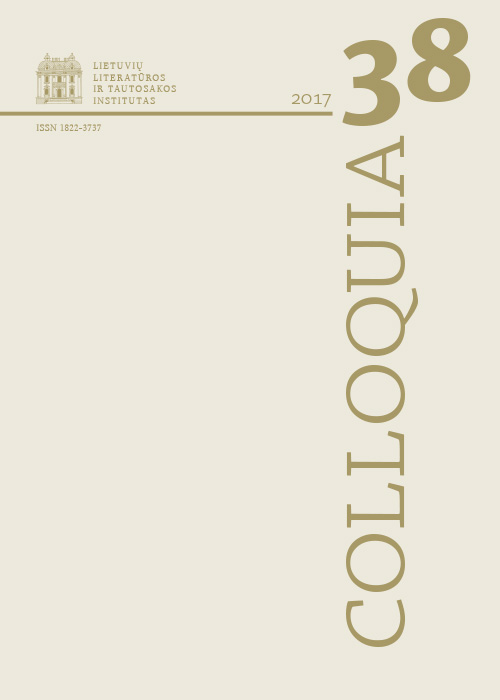Kultūrinės traumos atšvaitai Romualdo Granausko romane Duburys ir Ramūno Klimo romane Maskvos laikas
Santrauka
Straipsnyje siekiama įsigilinti į kultūrinės traumos apraiškas šiuolaikinėje lietuvių literatūroje analizuojant du romanus, publikuotus jau XXI a. pradžioje, taigi praėjus daugiau nei 20 metų nuo Nepriklausomybės atkūrimo: Romualdo Granausko Duburys (išleistas 2003) ir Ramūno Klimo Maskvos laikas (2005). Skirtingų kartų rašytojai gręžiasi į sovietinę praeitį ir bando atskleisti esminius jos bruožus, gilinasi į to laiko palikimą. Abiems autoriams rūpi išsiaiškinti ne tiek tai, kas įvyko, bet labiau – kokios sovietmečio nuosėdos pasiliko žmonių sąmonėje, jausmuose ir emocijose, kaip šis laikas paveikė lietuvių identitetą. Romanai liudija sudėtingą kultūrinę traumą: Granauskas labiau pabrėžia žmogaus jausmų ir emocijų sutrikimus, savižudišką elgesį, Klimas – intelektinę disharmoniją, individo dvasios nestabilumą. Šie tekstai – tai kartu nuoroda ir į mūsų laiką, bandantį atrasti ryšį su nesena praeitimi, kurios skausmingos patirtys ilgai buvo nutylimos.
